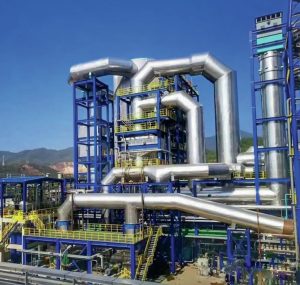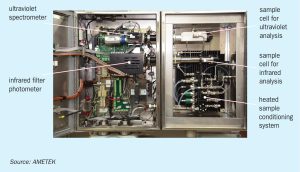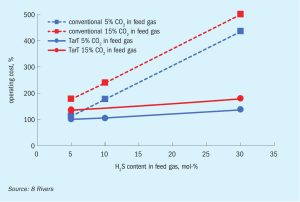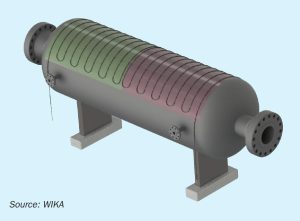TGU catalyst poisoning and deactivation
With the aid of a rigorous kinetic model for TGU hydrogenation reactors, incorporating catalyst deactivation mechanisms, designers and operators can forecast the life expectancy of reactor catalyst beds.
With the aid of a rigorous kinetic model for TGU hydrogenation reactors, incorporating catalyst deactivation mechanisms, designers and operators can forecast the life expectancy of reactor catalyst beds.

As producers and regulators become increasingly concerned about the ‘circular economy’, there is increasing focus on regenerating waste sulphuric acid for re-use.

In this case study AGRU Kunststofftechnik reports on how a new condenser design, engineered by OMV and INWA AG using PFA sheets from AGRU, was implemented at OMV refinery in Austria to address maintenance problems due to corrosion of the wet sulphuric acid (WSA) condensers and the follow-up units.

A new burner design for the combustion of natural gas with either combustion air or pure oxygen as the oxidiser has been developed by CS Combustion Solutions. The new Oxijet®-Burner has been designed to perform both start-up and main operation functions with one burner.

While phosphate fertilizer production represents the main slice of demand for elemental sulphur and sulphuric acid, sulphur fertilizers continue to be a growing sector of demand due to changes in the way that we use sulphur.

CRU’s Sulphur + Sulphuric Acid 2023 Conference and Exhibition takes place at the Sheraton New Orleans, Louisiana, USA, 6-8 November.

Comprimo and Ametek now offer the Analyser Air Control Technology (2ACT) Solution to the industry which enables operating companies to control their assets closer to design capacity at higher recovery efficiency and with fewer unscheduled outages.

TarT technology, one of 8 Rivers’ decarbonisation technologies, shows promise as an economical, efficient, sour gas sweetening process with near-zero carbon dioxide emissions, and may be key to unlocking access to the world’s sour gas reserves.

WIKA discusses a novel and easy way to monitor the shell temperature of the Claus thermal reactor using proven technology and highlights the benefits a purge-less thermocouple system for high temperature measurement.

The recovery of waste heat from Aurubis’ copper smelting operation in Hamburg is already helping to reduce global carbon emissions and has the potential to provide heat for up to 20,000 homes through the district heating network in Hamburg’s HafenCity. The energy for the network comes from waste heat that Aurubis recovers from their sulphuric acid plant, using unique Alfa Laval plate heat exchanger technology.